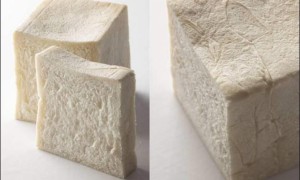1. smile (v.) (n.) 微笑
smile 可作动词或名词,微笑是世界共通的语言(universal language) ,是人们在打招呼、开心或感到满足时,嘴角上扬的脸部表情(facial expression)。
例:”Let us always meet each other with smile, for the smile is the beginning of love.” — Mother Teresa
「让我们总是以微笑示人吧,因为微笑是爱的开始。」- 德雷莎修女
2. laugh (v.) (出声地)笑;大笑
laugh是发出声音的笑,在laugh的时候,通常脸部和身体都会一起动,例如:The job of a comedian is to make people laugh.(喜剧演员的工作是让人们笑),从这个句子可明显看出 laugh和smile之间的差异。
laugh这个字可延伸出许多有趣的片语 ,如burst out laughing/burst into laughter是「放声大笑、哄堂大笑」的意思,要注意其中动词(laugh)和名词(laughter)和不同介(副)词的搭配。另外还有laugh one’s head off,字面上看起来好像是 「笑得很激动头都掉了」,事实上是「大笑不止、狂笑不已」的意思。
例1:Owen’s joke was so funny that I laughed till I cried.
欧文的笑话实在是太好笑了,我笑到流泪。
例2:The manager’s wig fell off and he was not aware of it at all. All of us burst out laughing/burst into laughter.
经理的假发掉下了来,而他却完全没有注意到。所有的人都放声笑了出来。
例3:You laughed your head offwhen I tripped!
我绊倒了,你却笑个不停。

3. grin (v.)(n.)露齿笑;咧嘴笑
grin可理解为比较灿烂(radiant)的smile,指得是嘴巴张开、露出牙齿的笑,也就是比smile笑得更开一些的脸部表情。
例:I assumed things had gone well during the meeting because the manager had a broad grin on his face.
我想会议应该进展得很顺利,因为经理笑得合不拢嘴。
4. beam (v.) 高兴地微笑,眉开眼笑
beam跟grin意思接近,但beam比较强调是高兴时的笑意。
例:Sally’s parents stood there beaming as she went up to receive the prize.
当莎莉上台领奖的时候,她的父母亲在一旁高兴地微笑。
5. smirk (v.) 假笑;得意地笑;傻笑 (n.) 得意的笑容,诡秘的笑容
smirk 是一种自满、沾沾自喜或幸灾乐祸的微笑,暗示自觉比别人更高一等。
例:Asked who he voted for, Mr. Obama looked up and smirked.
当被问到会投票给谁的时候,欧巴马抬头得意地笑。
6. giggle (v.) 咯咯地笑,傻笑
giggle大约在十六世纪时出现在英文中,这个字并非源自于拉丁文或希腊文,而是一个状声字,模拟嘻笑时所发出的声音,通常指的是因为感到有趣、而咯咯地笑,或因尴尬或紧张而傻笑。
例:The girls giggled when the rock star came to the classroom.
摇滚明星来到教室的时候,女孩子们咯咯地笑。







